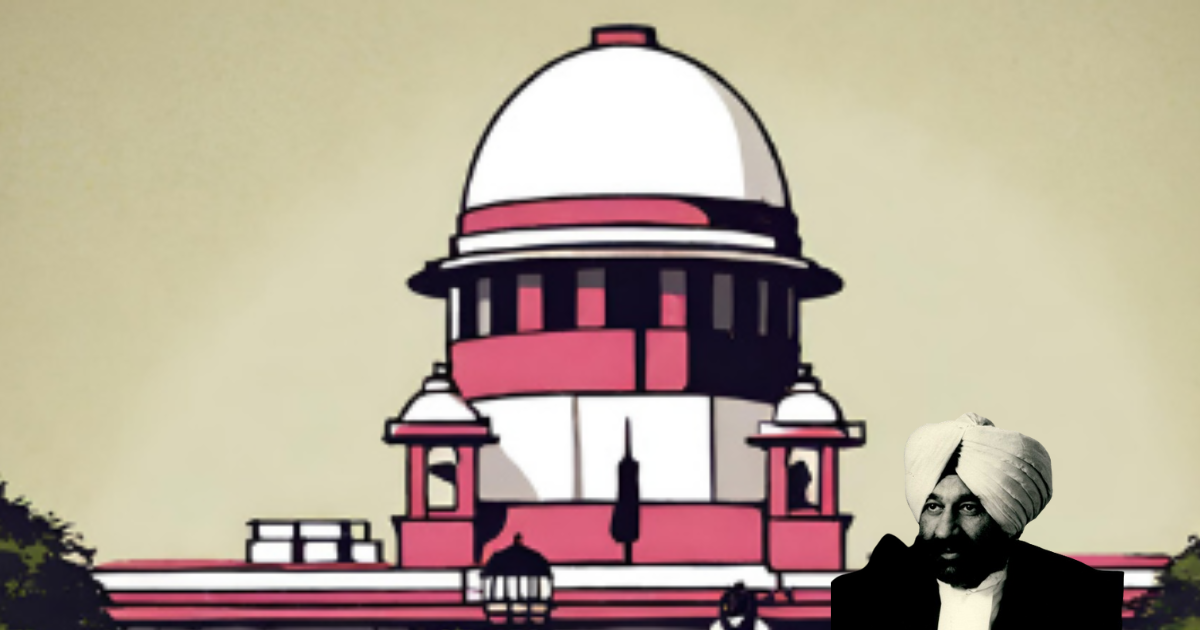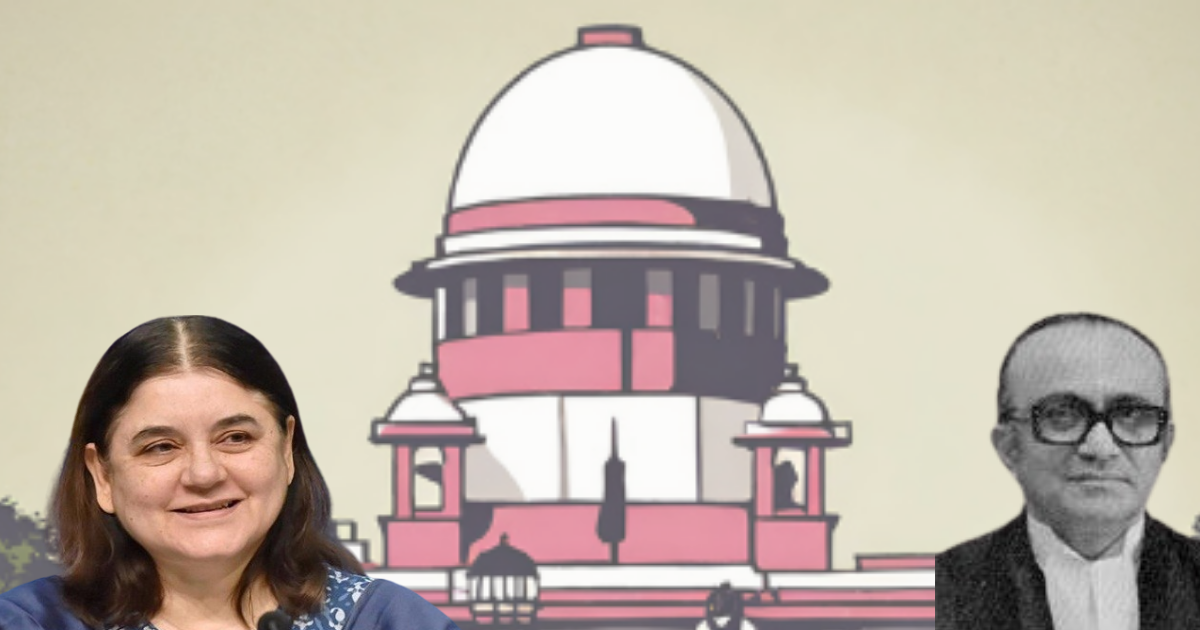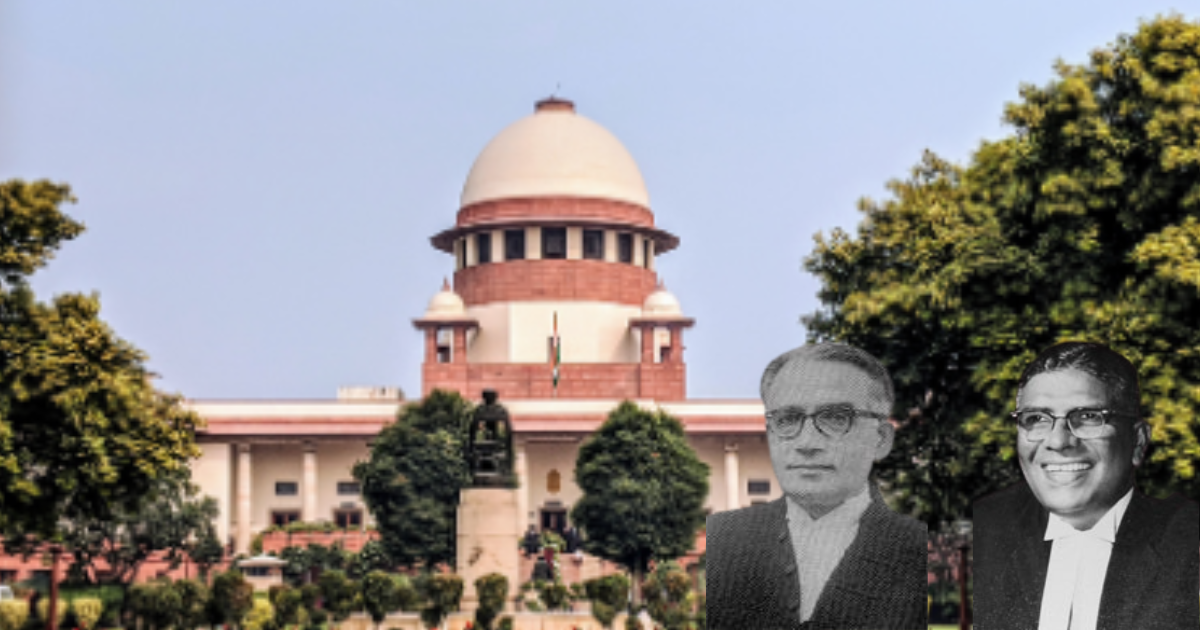In the socio-legal landscape of 1985 India, the case of Mohd. Ahmed Khan v. Shah Bano Begum (AIR 1985 SC 945) emerged as a watershed moment, illuminating the intricate intersection of personal laws, gender justice, and the constitutional fabric. The legal narrative unfolds against the backdrop of a contentious divorce, revolving around the fundamental question of a Muslim woman’s right to maintenance post-divorce.
The facts of the case begins with Shah Bano Begum, a Muslim woman, seeking justice in the aftermath of her divorce from Mohd. Ahmed Khan. Distressed and economically vulnerable, Shah Bano approached the courts, invoking Section 125 of the Criminal Procedure Code (CrPC), which provides for maintenance of wives, children, and parents.
Ahmed Khan contested Shah Bano’s claim, relying on the provisions of Muslim personal law. He argued that his obligation to provide maintenance ceased with the irrevocable talaq (divorce), and the CrPC did not govern Muslim marriages.
The legal battleground witnessed a clash of personal laws, constitutional principles, and gender justice. Shah Bano’s counsel contended that the principles of justice, equity, and gender equality embedded in the Indian Constitution took precedence over any personal law. The legal arsenal included arguments on the applicability of the CrPC to Muslim women and the constitutional duty to secure justice for all citizens, irrespective of religious affiliations. The Supreme Court embarked on a nuanced analysis. The Court, led by Justice Chandrachud, delved into the intricacies of personal laws and constitutional guarantees. The judgment acknowledged the diversity of personal laws but emphasized the overarching authority of the Constitution as the supreme law of the land.
The majority opinion in Mohd. Ahmed Khan v. Shah Bano Begum marked a landmark departure from conventional interpretations of personal laws. The Court held that Section 125 of the CrPC applied universally, cutting across religious lines, and Muslim women were entitled to maintenance under its provisions. Justice Chandrachud underscored the constitutional duty to ensure justice to all citizens and rejected any interpretation that would render Muslim women destitute after divorce.
The judgment drew inspiration from earlier decisions, such as Dandapani v. Dandapani (AIR 1974 SC 870), which laid the foundation for a broad interpretation of Section 125, emphasizing its applicability to all regardless of religious identity.
However, the majority decision sparked a fierce debate, leading to a legislative response. The Rajiv Gandhi government, in a bid to address the contentious issue, passed the Muslim Women (Protection of Rights on Divorce) Act in 1986. The Act sought to nullify the Supreme Court’s interpretation, restricting the maintenance period to the iddat period (three menstrual cycles) post-divorce. The legal aftermath of Mohd. Ahmed Khan v. Shah Bano Begum reverberated through the corridors of jurisprudence. The case became emblematic of the tension between personal laws and constitutional principles, prompting reflections on the need for a uniform civil code to harmonize diverse legal traditions. The dissenting opinion by Justice Y.V. Chandrachud in the subsequent case of Daniel Latifi v. Union of India (2001 AIR 3986) advocated for a more nuanced approach. Justice Chandrachud suggested that personal laws should be subject to the principles of gender justice embedded in the Constitution, calling for a balanced and harmonious interpretation.
Dr. Tahir Mahmood in his book ’Muslim Personal Law’ (1977 Edition, pages 200-202), has made a powerful plea for framing a uniform Civil Code for all citizens of India. He says: “In pursuance of the goal of secularism, the State must stop administering religion based personal laws”. He wants the lead to come from the majority community but, we should have thought that, lead or no lead, the State must act. It would be useful to quote the appeal made by the author to the Muslim community: “Instead of wasting their energies in exerting theological and political pressure in order to secure an “immunity” for their traditional personal law from the state‘ legislative jurisdiction, the Muslim will do well to begin exploring and demonstrating how the true Islamic laws, purged of their time-worn and anachronistic interpretations, can enrich the common civil code of India.” At a Seminar held on October 18, 1980 under the auspices of the Department of Islamic and Comparative Law, Indian Institute of Islamic Studies New Delhi? he also made an appeal to the 868 Muslim community to display by their conduct a correct understanding of Islamic concepts on marriage and divorce (See Islam and Comparative Law Quarterly, April-June, 1981, page 146). Before we conclude, we would like to draw attention to the Report of the Commission on marriage and Family Laws, which was appointed by the Government of Pakistan by aResolution dated August 4, 1955. The answer of the Commission to Question No.5 (page 1215 of the Report) is that “a large number of middle-aged women who are being divorced without rhyme or reason should not be thrown on the streets without a roof over their heads and without any means of sustaining themselves and their children.” The Report concludes thus: “In the words of Allama Iqbal, “the question which is likely to confront Muslim countries in the near future, is whether the law of Islam is capable of evolution-a question which will require great intellectual effort, and is sure to he answered in the affirmative ” For these reasons, we dismiss the appeal and confirm the judgment of the High Court. The appellant will pay the costs of the appeal to respondent 1, which we quantify at rupees ten thousand. It is needless to add that it would be open to the respondent to make an application under section 127 (1) of the Code for increasing the allowance of maintenance granted to her on proof of a change in the circumstances as envisaged by that section.
Citation: 1985 AIR 945 1985 SCR (3) 844 1985 SCC (2) 556 1985 SCALE (1)767
Case Title: MOHD. AHMED KHAN Vs. SHAH BANO BEGUM AND ORS.



